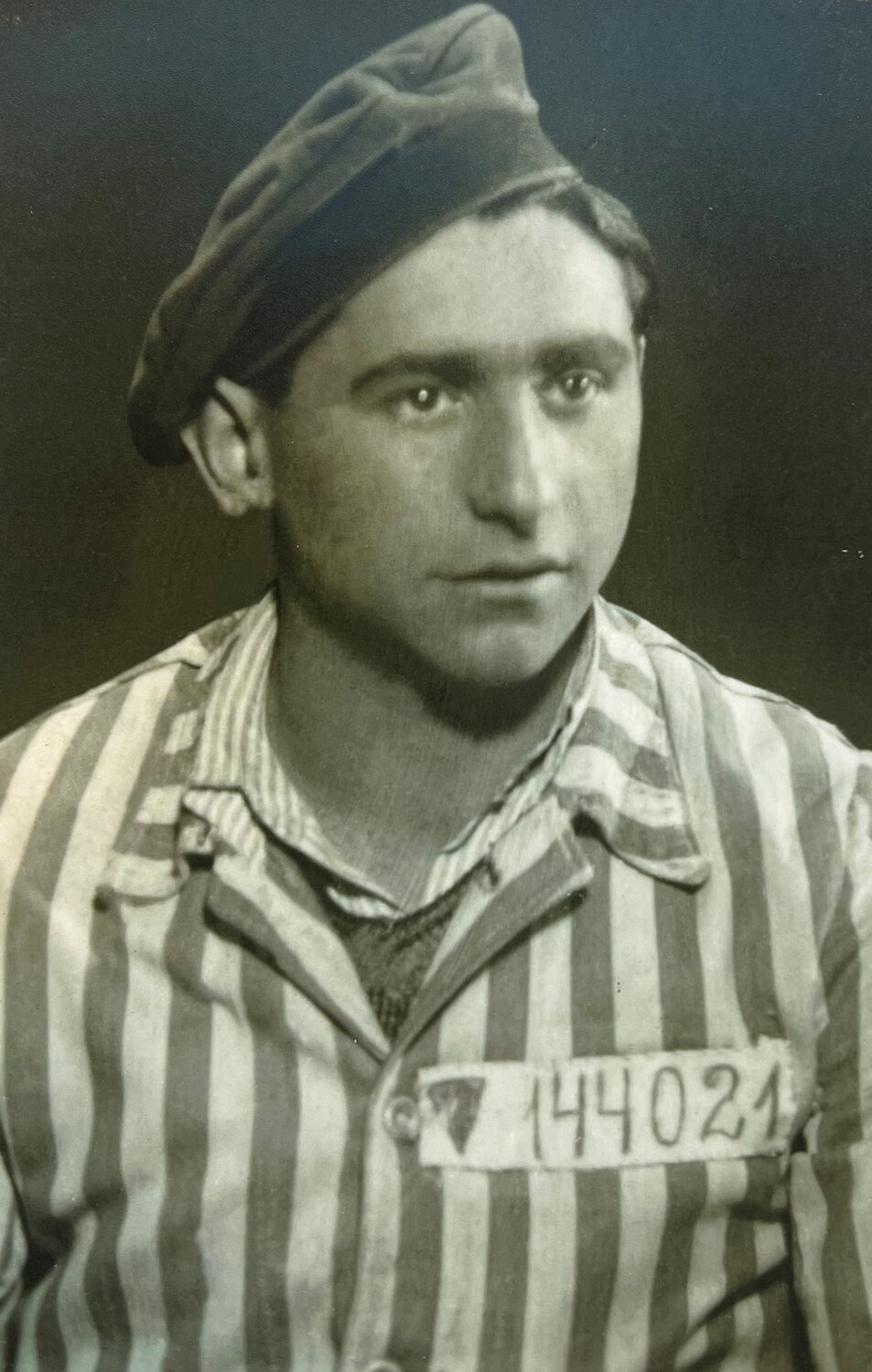Holocaust center marks remembrance day with story of local survivors
PROVIDENCE – In honor of International Holocaust Remembrance Day, on Jan. 27, the Sandra Bornstein Holocaust Education Center is sharing the story of Jack and Sam German, two brothers who survived the Nazi terror and concentration camps, and later immigrated to Providence.
Sam and Jack were two of six children, born 15 years apart. Their lives before the war were quite different. Sam was the eldest son, a new father and husband in his late 20s when the war broke out. In contrast, Jack was only 12, and, as the youngest child in his family, was doted on by his parents and four older sisters. Their differences in age and life experience would be bridged by their mutual endurance of the horrors of the Holocaust.
The German family came from Warsaw, Poland. In 1939, after the Germans took over Poland, the family was locked in the Warsaw Ghetto. They survived the squalid conditions by begging for food and taking strength from one another.
Because the family was healthy, they performed forced labor in factories for the Germans, sparing them from the deportations of 1942. However, their relative “luck” would soon run out.
In 1943, following the Warsaw Ghetto uprising, the ghetto was liquidated and Jack and Sam were forced to go to Majdanek, a slave labor camp. This would be the last time the brothers saw their parents or sisters, and Sam would never be reunited with his wife and baby. Most of the people in the Warsaw Ghetto were sent to Treblinka, where they died in the gas chambers.
According to Jack, survival became the ultimate objective in the camps. This meant seeking adequate food and warmth, as well as avoiding the ire of the cruel Nazi guards, who often shot prisoners randomly. The brothers had little awareness of the war raging around them, but they knew about the mass killings of Jews in extermination camps in Poland.
Jack worked as a plumber while Sam worked on ammunition construction. Despite the frigid temperatures, neither had coats or shoes; supplies were only brought from Treblinka after being taken from those who were murdered.
Since the brothers worked outside of the concentration camp, they had increased access to food, which Jack credits for keeping him alive. This was their reality for over a year.
They were then taken to another camp, where they were ordered to build roads. In the few months they were there, Jack described poor conditions with little food.
By this point, the Germans were losing badly, and as the Russians advanced further into Nazi territory, the brothers were moved yet again, this time to the Buchenwald concentration camp. There, Jack was put on a work detail clearing debris and repairing German homes damaged by the bombing. He stayed with hundreds of men in overcrowded barracks, made up of hard wood and without blankets. On one occasion, he was punished by the guards by being forced to hold two buckets of water while frigid water was continuously poured over his head.
With the Allied forces closing in, the Nazis abandoned Buchenwald and sent the remaining prisoners on a forced march across the country. Those who could not continue walking were shot. Jack was extremely weak and unable to walk on his own, so Sam carried him for hundreds of miles, using what little strength he had left to save his brother’s life.
Just when it seemed like all hope was lost, the brothers were liberated by British and Russian troops, on May 2, 1945.
Miraculously, Sam and Jack had remained together the whole time through many camps.
In the fall of 1949, the two immigrated to Providence, on the SS Sturgis. Jack went on to be a plumber for 30 years, using the skills he learned during forced labor to make a new life for himself in America. Sam, whose profession is unknown, lived in Rhode Island for many years before he and his family moved to New York City.
This incredible story was brought to the Holocaust center’s attention by David Spitzman, a long- time board member, supporter and speaker who knew Sam and Jack personally as a child. They were friends of his parents, Meyer and Rachel Spitzman, who were both survivors themselves. Spitzman reflected that Jack and Sam were incredible people to have gone through what they experienced and still be able to rebuild a life for themselves.
Jack is pictured here in the uniform he had to wear with his prisoner number on it. Jack credits his older brother for saving his life over and over again during the Holocaust, and God for always being with him.
Many thanks to Paul German, Jack’s son, of New City, New York, and Spitzman for getting the story of these courageous survivors to the Sandra Bornstein Holocaust Education Center.
GIOVANNA WISEMAN (gwiseman@hercri.org) is director of programs and community outreach at the Sandra Bornstein Holocaust Education Center, in Providence.








